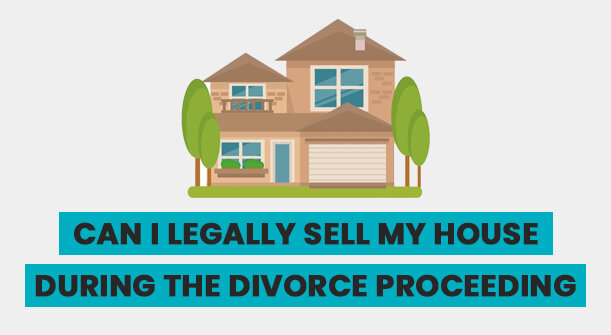
Divorce is a challenging process that involves the division of assets between the separating spouses. One of the most significant assets in a divorce is the house. If you find yourself going through a divorce, you may be wondering if you can legally sell your house during the proceedings. Let’s delve into the complexities of selling a house during a divorce and gain a clearer understanding of your options.
What Is the Division of Assets in a Divorce?
The division of assets in a divorce refers to the process of dividing the marital property between the spouses. This includes all assets acquired during the marriage, such as houses, cars, investments, and personal belongings. The goal is to achieve a fair and equitable distribution of these assets, taking into account various factors such as the length of the marriage, the financial contributions of each spouse, and the needs of any children involved.
When it comes to the division of the house, specific guidelines are usually followed. These guidelines differ depending on the jurisdiction, as each state or country may have its own laws and regulations governing divorce proceedings. It is crucial to consult with a divorce attorney to understand the specific guidelines applicable to your situation.
Can I Sell My House During the Divorce?
Whether you can sell your house during a divorce depends on several factors. In some cases, it may be permissible to sell the house, while in others, certain conditions must be met. Here are some conditions under which you may be able to sell your house during a divorce:
- Both spouses agree to the sale: If both you and your spouse are in agreement about selling the house, you can proceed with the sale. This typically involves reaching a mutually satisfactory agreement regarding the division of the sale proceeds.
- Court authorization: If your divorce is final or you have obtained permission from the court, you may be able to sell the house. This often occurs when one spouse wants to buy out the other spouse’s share of the home or when the court determines that selling the house is in the best interest of both parties.
- Stipulations in the divorce decree: In some cases, the divorce decree may include specific provisions regarding the sale of the house. These provisions could outline the timeline for the sale, the division of proceeds, and any other relevant details.
It is essential to consult with your divorce attorney to understand the specific rules and conditions that apply to your situation. They will guide you through the legal process and help you make informed decisions.
What Happens if I Sell the House Without the Other Spouse’s Consent?
Selling the house without your spouse’s consent can have serious legal implications. It is crucial to remember that during a divorce, both spouses have certain rights and obligations regarding the marital assets. If you sell the house without your spouse’s consent, you may face legal consequences and complications in the divorce proceedings.
When you sell the house without your spouse’s consent, it can be seen as a violation of their rights and may be viewed unfavorably by the court. Your spouse may have the right to challenge the sale and seek legal remedies, such as stopping the sale or claiming a larger share of the sale proceeds. This can lead to delays and disputes, prolonging the divorce process and potentially incurring additional legal expenses.
To avoid these complications, communicate openly and honestly with your spouse throughout the divorce proceedings.
What Should I Consider When Selling a House During Divorce?
Selling a house during a divorce requires careful consideration of various factors. Here are some important aspects to keep in mind when navigating the process:
Legal Implications
Consult with your divorce attorney to understand the legal implications of selling the house during the divorce. They will guide you through the legal requirements, ensure compliance with the divorce settlement, and help protect your rights and interests.
Communication with Spouse
Open and transparent communication with your spouse is vital when selling a house during a divorce. Discuss your intentions, explore options, and strive to reach a mutually beneficial agreement. A cooperative approach can help minimize conflicts and facilitate a smoother transaction.
Property Valuation
Obtain a professional property valuation to determine the fair market value of the house. This will help establish a realistic selling price and ensure a fair division of proceeds.
Division of Sale Proceeds
Discuss and agree on how the sale proceeds will be divided. This may involve negotiations and compromises to reach a fair distribution that complies with the divorce settlement.
Timeline for Sale
Consider the timeline for selling the house. Depending on your circumstances, it may be beneficial to sell the house before the divorce is finalized or wait until after the divorce. Discuss the pros and cons with your divorce attorney and real estate agent to make an informed decision.
Options for Selling Your House
When selling your house during a divorce, you have several options to consider. Each option has its own advantages and disadvantages, so it is crucial to evaluate them based on your specific needs and circumstances. Here are three common options:
Cash Home Sale
In a cash home sale, the buyer pays the entire purchase price in cash without relying on mortgage financing. This type of sale typically offers a quicker and more straightforward process, as it eliminates the need for loan approval and associated delays. You may benefit from a faster closing and reduced risks associated with loan contingencies.
Traditional Home Sale
A traditional home sale involves listing your house on the real estate market with the assistance of a real estate agent. This option offers the advantage of potentially reaching a larger pool of potential buyers. However, it may also involve longer timeframes and additional expenses, such as realtor commissions and closing costs.
For Sale by Owner (FSBO)
Selling your house as a for sale by owner (FSBO) means you handle the entire sale process without the assistance of a real estate agent. This option allows you to save on realtor commissions but requires significant time, effort, and knowledge of the real estate market.
Why Is a Cash Home Sale the Best Option During Divorce?
When going through a divorce, a cash home sale can provide numerous benefits that make it the best option for many individuals. Here is a bulleted list of the advantages of choosing a cash home sale during a divorce:
- Sell your house fast: Divorce proceedings can be lengthy and emotionally draining. A cash home sale allows you to sell your house quickly, providing a sense of closure and allowing you to move on with your life.
- Make no home repairs: Dividing responsibilities and dealing with repairs during a divorce can be challenging. With a cash home sale, you can sell your house as-is, avoiding the need for costly repairs and renovations.
- No closing costs: Financial strain is common during a divorce. A cash home sale often includes the buyer covering the closing costs, relieving you of additional financial burdens.
- No realtor commissions or fees: Selling your house directly to a cash buyer eliminates the need to pay realtor commissions or fees, allowing you to keep more of the sale proceeds.
Get Cash for My Home in Spartanburg, South Carolina
If you need to sell your house fast but don’t want the hassle of a traditional home sale, contact Peak Home Buyers. We buy houses as-is. No repairs are needed. Avoid closing costs and realtor commissions. Close in as little as seven days. Call 385-355-1807 to get cash for your home from our local home buyers in South Carolina.
